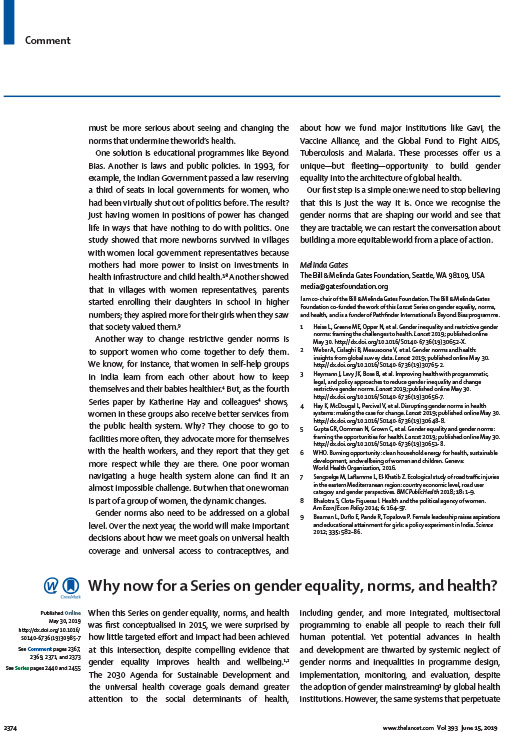When this Series on gender equality, norms, and health was first conceptualised in 2015, we were surprised by how little targeted effort and impact had been achieved at this intersection, despite compelling evidence that gender equality improves health and wellbeing. The 2030 Agenda for Sustainable Development and the universal health coverage goals demand greater attention to the social determinants of health, including gender, and more integrated, multisectoral programming to enable all people to reach their full human potential. Yet potential advances in health and development are thwarted by systemic neglect of gender norms and inequalities in programme design, implementation, monitoring, and evaluation, despite the adoption of gender mainstreaming by global health institutions. However, the same systems that perpetuate these injustices against women and girls also harm men and boys and gender and sexual minorities, and affect a broad array of health outcomes for all people. We aim for this Series to provide new understanding of the impact of gender inequalities and norms on health, and the opportunities that exist within health systems, programmes, policies, and research to transform gender norms and inequalities.
